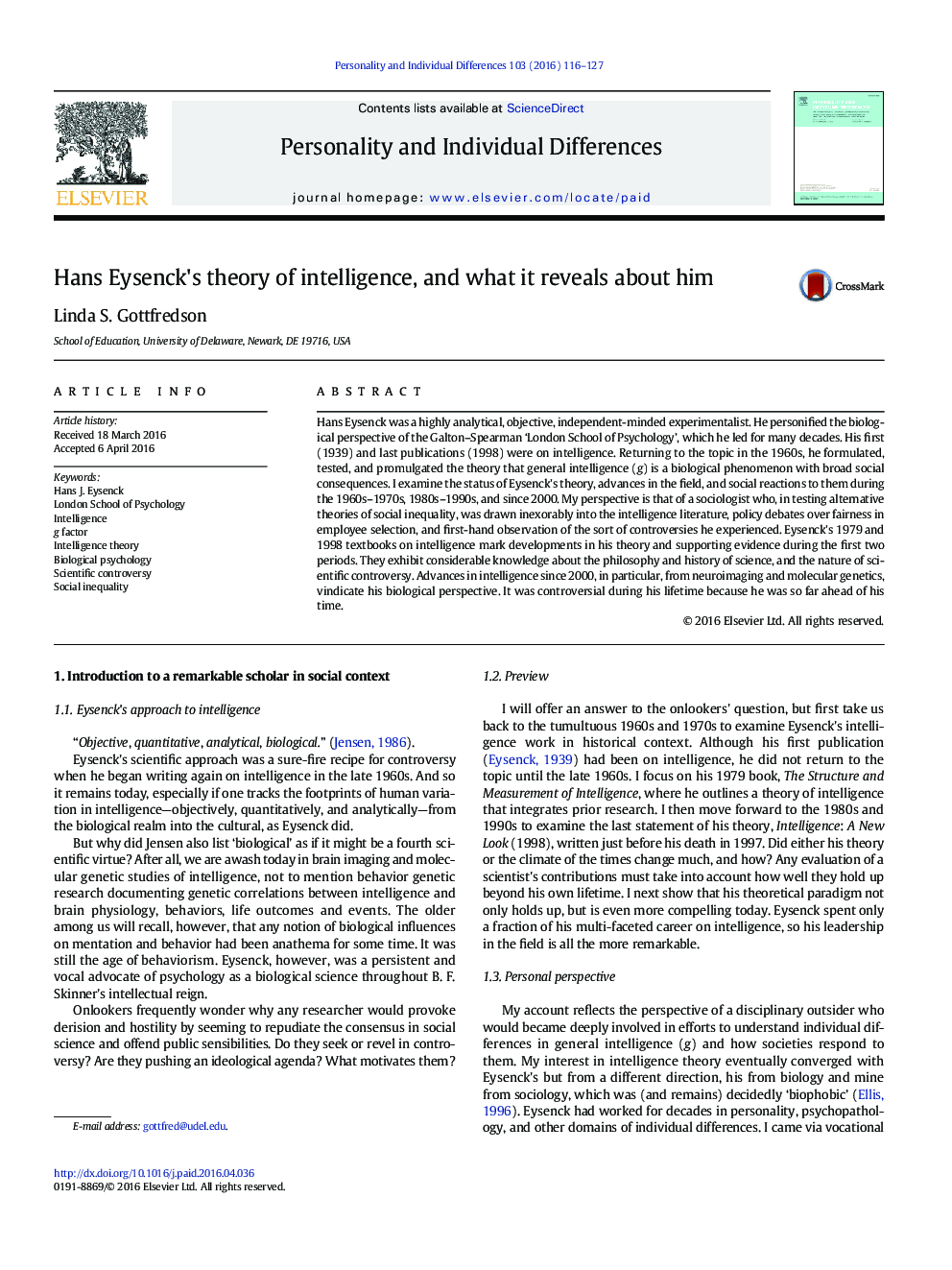| کد مقاله | کد نشریه | سال انتشار | مقاله انگلیسی | نسخه تمام متن |
|---|---|---|---|---|
| 5036257 | 1472015 | 2016 | 12 صفحه PDF | دانلود رایگان |

- For Eysenck, g was a biological fact with broad social consequences.
- The social climate 1960-2000 was hostile to evidence for a biological intelligence.
- By 2000 research vindicated his claims on g's heritability and social consequences.
- Cadres of critics disdained the new evidence with evolving, ad hoc evasions.
- Since 2000, research shows g to be widely distributed across both brain and genome.
Hans Eysenck was a highly analytical, objective, independent-minded experimentalist. He personified the biological perspective of the Galton-Spearman 'London School of Psychology', which he led for many decades. His first (1939) and last publications (1998) were on intelligence. Returning to the topic in the 1960s, he formulated, tested, and promulgated the theory that general intelligence (g) is a biological phenomenon with broad social consequences. I examine the status of Eysenck's theory, advances in the field, and social reactions to them during the 1960s-1970s, 1980s-1990s, and since 2000. My perspective is that of a sociologist who, in testing alternative theories of social inequality, was drawn inexorably into the intelligence literature, policy debates over fairness in employee selection, and first-hand observation of the sort of controversies he experienced. Eysenck's 1979 and 1998 textbooks on intelligence mark developments in his theory and supporting evidence during the first two periods. They exhibit considerable knowledge about the philosophy and history of science, and the nature of scientific controversy. Advances in intelligence since 2000, in particular, from neuroimaging and molecular genetics, vindicate his biological perspective. It was controversial during his lifetime because he was so far ahead of his time.
Journal: Personality and Individual Differences - Volume 103, December 2016, Pages 116-127